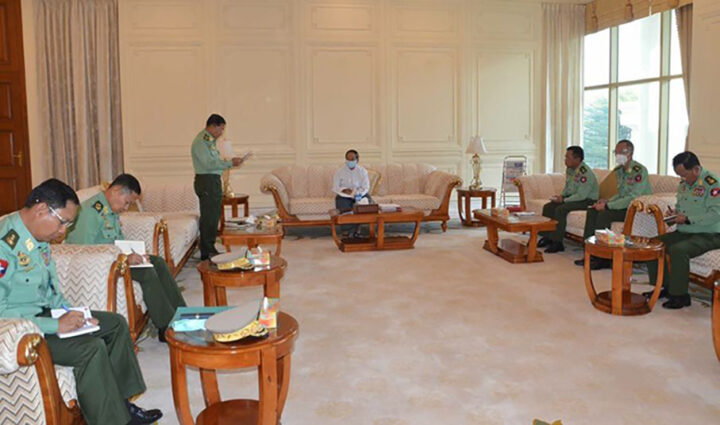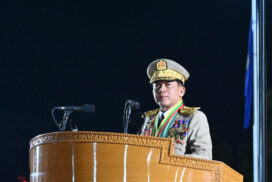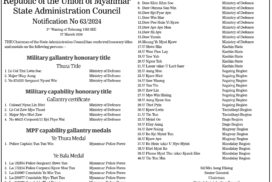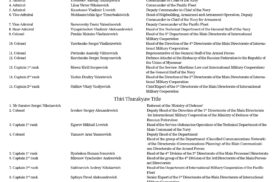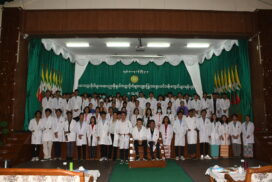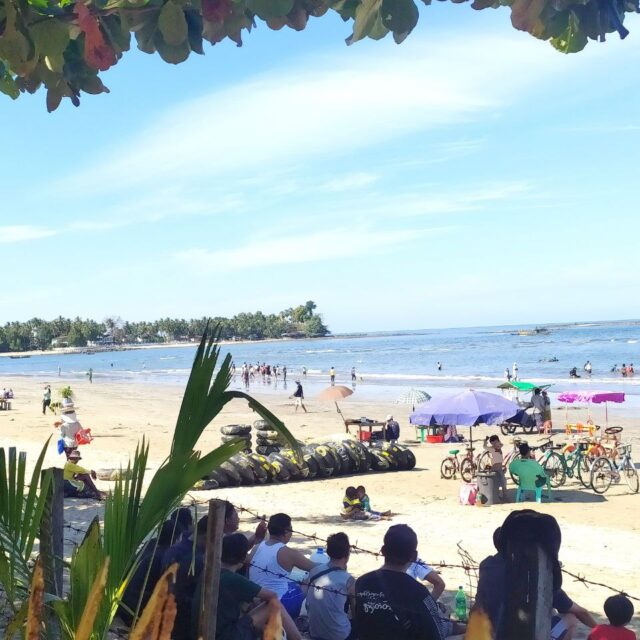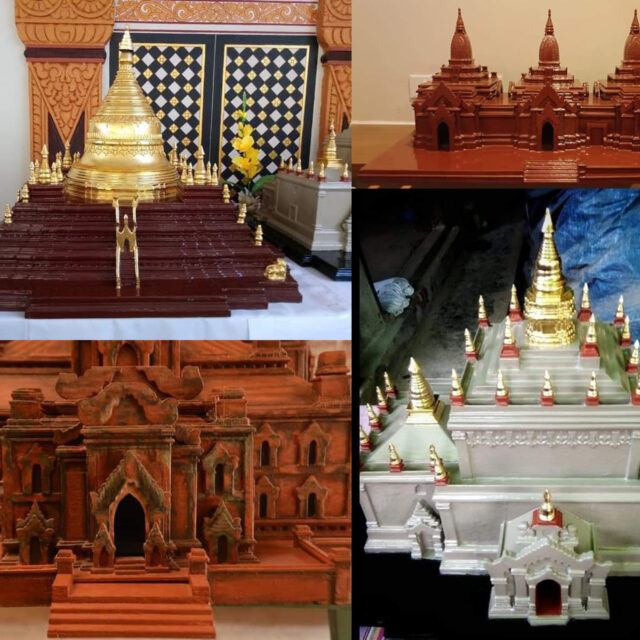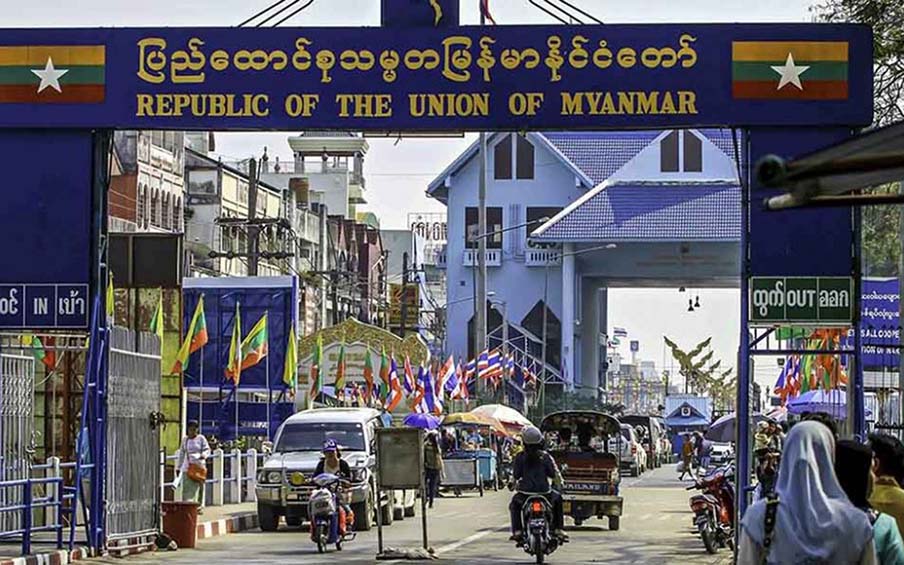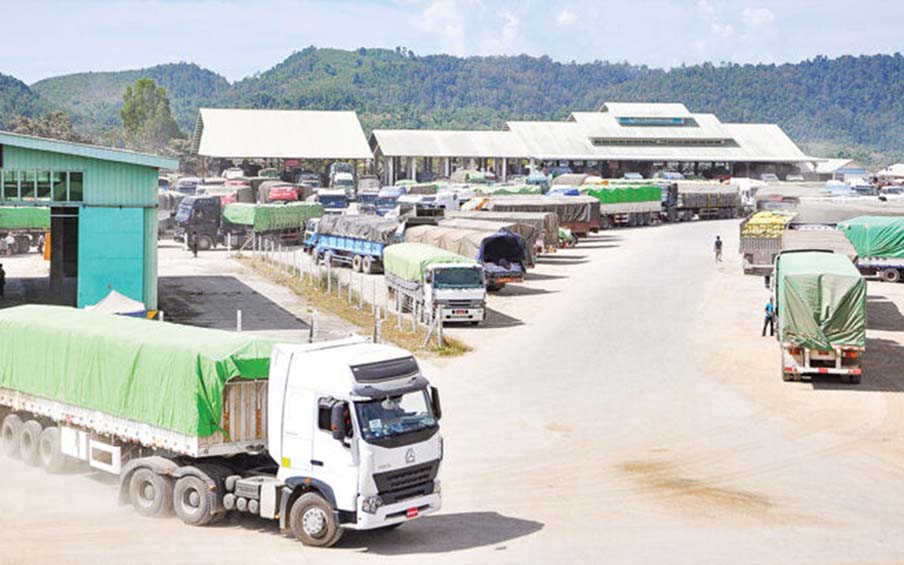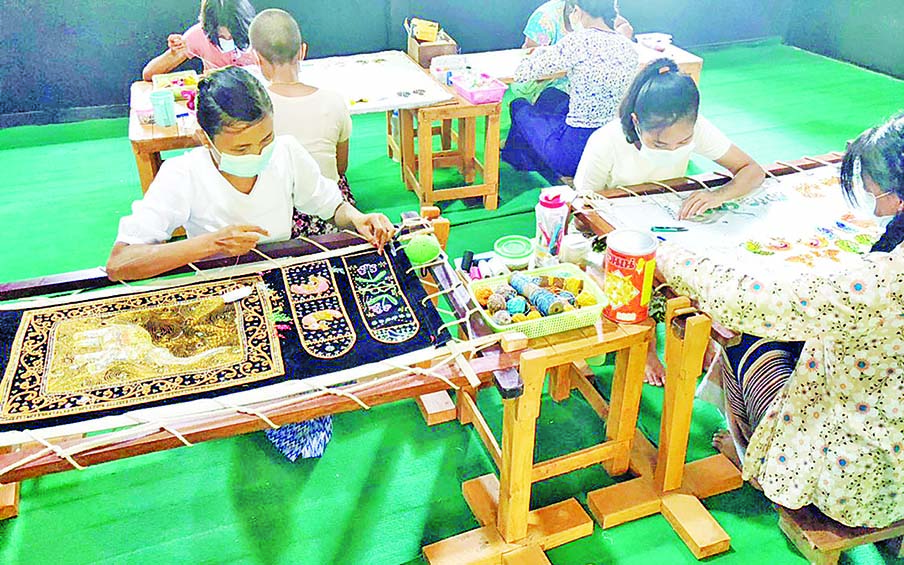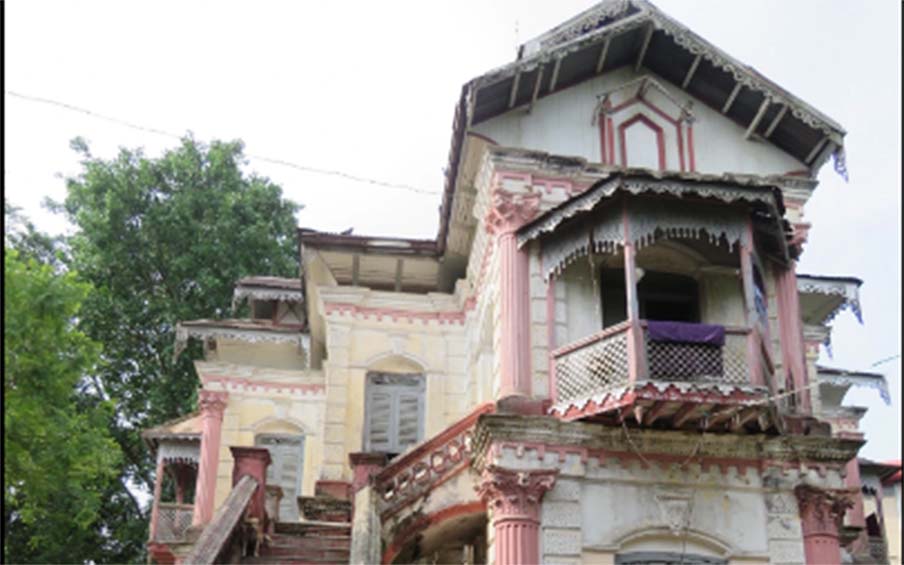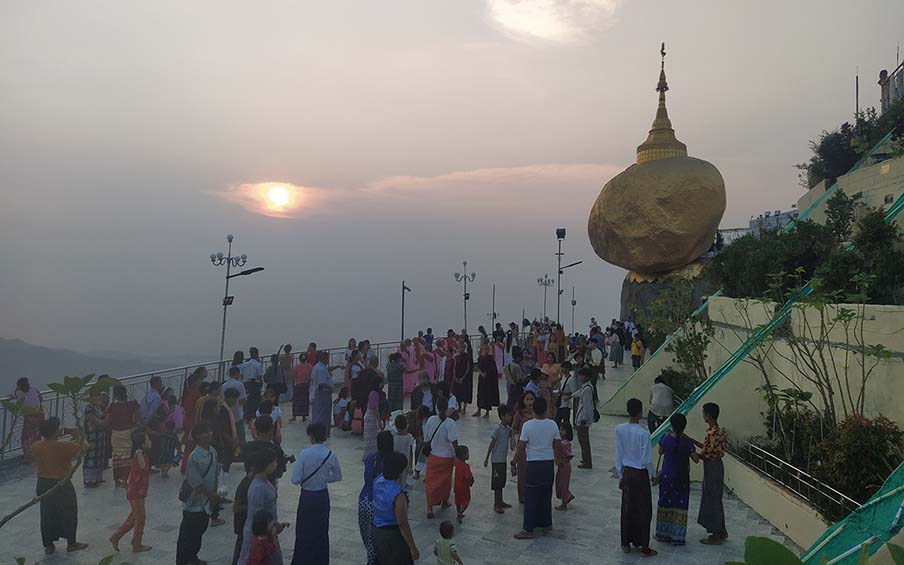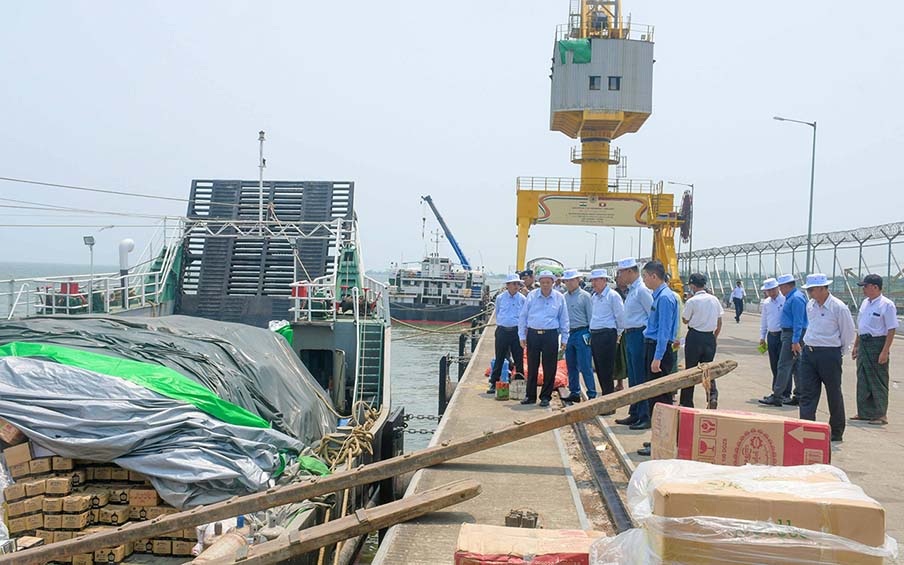The National Defence and Security Council (NDSC) of the Republic of the Union of Myanmar held a meeting at the President House yesterday morning. Present at the meeting were Acting President U Myint Swe, Commander-in-Chief of Defence Services Senior General Min Aung Hlaing, Deputy Commander-in-Chief of Defence Services Commander-in-Chief (Army) Vice-Senior General Soe Win and members of the NDSC.
In presenting the national situation, the Senior General said the Tatmadaw always keeps in the fore the motto “People are the Parents” when it comes to the people. People aspire a multiparty democratic system. So, the Tatmadaw adopted the political culture of conducting democracy transition process through negotiations and legal measures and in peace and stability. Then, the country successfully held the 2010 multiparty general election, the 2015 multiparty general election and 2012 and 2017 by-elections. There were no major disputes at the elections. Only minor ones occurred, and they were settled by the relevant election commissions and officials in accord with the law. A free and fair election is the life of multiparty democracy, and only a free and fair election will reflect the true public desire. Section 4 of the Constitution (2008) states, “The Sovereign power of the Union is derived from the citizens and is in force in the entire country.” The people have to directly or indirectly elect the government, the Hluttaws and the Union and region/state level bodies that will exercise the sovereign power of the State. The true aspiration of the people will be reflected, and the Sovereign power of the Union will be derived from the citizens only through a free, clean and fair election.
In scrutinizing the official voter list issued by the Union Election Commission, the results showed the number of 10,482,116 votes (more than 10.4 million votes) which may cause vote-rigging, in the 2020 multiparty general election. According to the official announcement of the Union Election Commission, the number of eligible voters was 38 million, and it is found that of them over 10 million might cause vote-rigging, and it might be over one-fourth (over 25%) of eligible voters. The entire people can know it is not a minor fault or a minor questionable case. The Tatmadaw has officially issued tables on the findings for 30 times, statements on its stance for two times before the election and four times after the election, totaling six. At the Tatmadaw press conferences, the case was explained in the presence of over 50 local and foreign media outlets with firm evidence through transparent means.
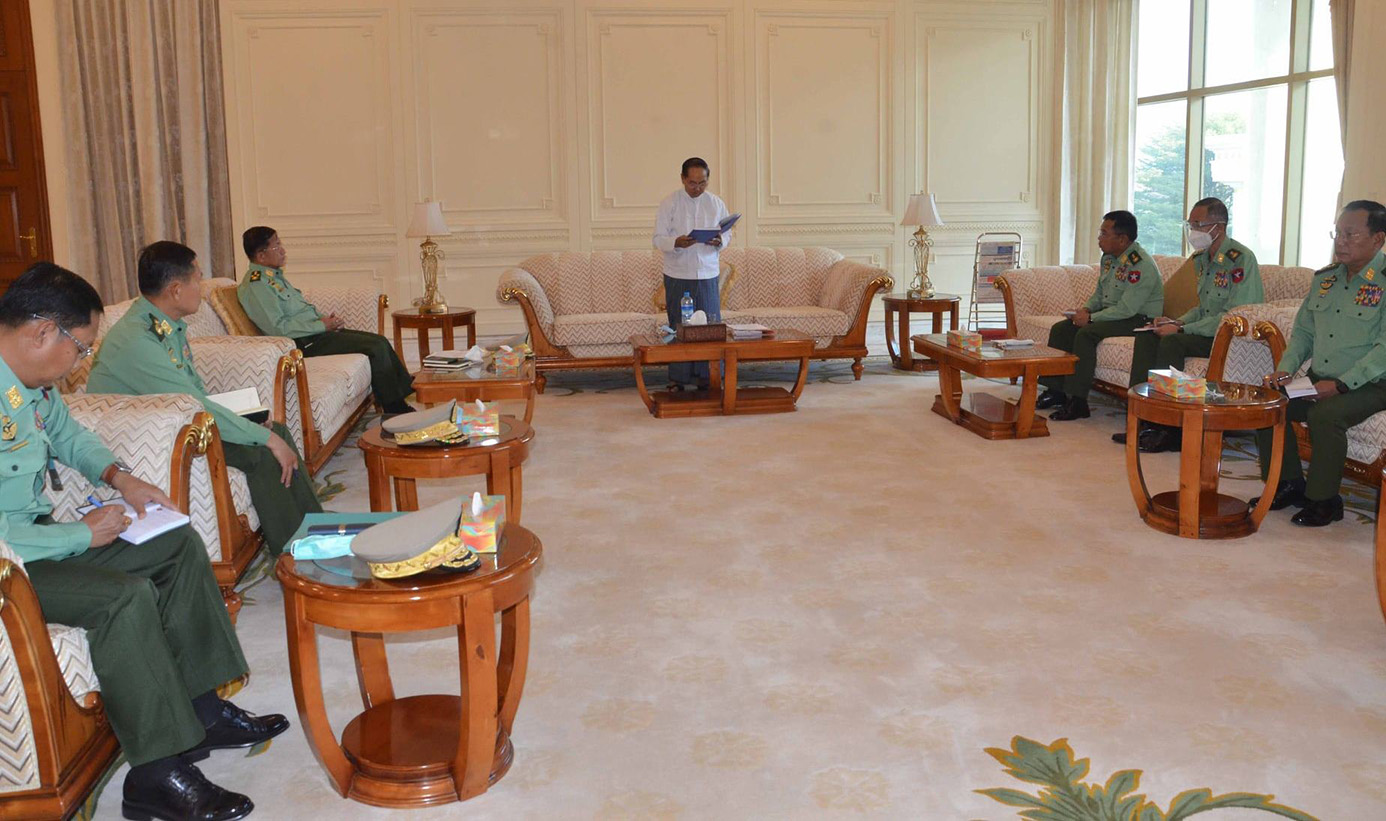
The Commander-in-Chief of Defence Services had repeatedly dealt with the matter of ensuring a free and fair election which is the foundation of multiparty democracy and an open political process before the election. The decision to certify a “free and fair election” cannot be made in a day. It must be rechecked whether there was freeness and fairness and cleanness during the canvassing period, election period and post-election period and whether they were free from any kind of suspicion. The recent election was questionable in connection with freeness and fairness and cleanness in all the said three periods. Hence, up to this day, 20 political parties issued 26 statements calling for the postponement of the third Hluttaw sessions until the matter of voter lists that might cause vote-rigging has been settled. As regards the performance of the UEC, the expressions of desire were held for 124 times in 99 townships during the period from 10-11-2020 to 29-1-2021.
Tatmadaw, in accordance with Constitution (2008) and existing laws and without overstepping the legal provisions designed to ensure a “free and fair election”, issued statements on 2-11-2020 to the government and the UEC, about the situation in the run-up to multiparty democracy elections, various UEC’s instructions that violated existing laws, and irregularities in early voting. The Tatmadaw issued another statement on 2-11-2020, urging ethnic armed organizations not to threaten local ethnic people and allow campaigning of political parties in their territories, in order to ensure a free and fair election. On 30-11-2020, the Tatmadaw issued a statement requesting the UEC to provide copies of election documents under Sections 74 and 76 of the Evidence Act, so as to resolve electoral disputes and recognize free and fair voting without suspicion. As the UEC rejected the Tatmadaw’s request, the Tatmadaw issued a statement on 10-12-2020, urging the UEC again to provide the documents as its request was made in line with the legal rights of a citizen to cast ballots and raise an objection. After the proposal of 203 Hluttaw representatives from the Tatmadaw and political parties to convene a special session at the Pyidaungsu Hluttaw in line with the Constitution was rejected on 11-1-2021, the Tatmadaw released a statement on 14-1-2021, calling for a review of if the rejection was in compliance with the Constitution. In its statement on 20-1-2021, the Tatmadaw asked the UEC to consider the issue, saying it had released its findings on the voting and voter list errors that could have led to fraud because it wanted to recognize without suspicion the results of the free, fair and transparent general election. It also asked either the Pyidaungsu Hluttaw or the government or the UEC to address the issue, in the interests of the State and its citizens, because the Tatmadaw and other political parties would accept the election results in accordance with the wishes of the people if the election results could be proved credible. Besides releasing those statements, the Tatmadaw also requested the government to convene the National Defence and Security Council meeting in order to resolve those issues.
The Commander-in-Chief of Defence Services continued to say that the Tatmadaw issued statements, urging the Union Election Commission which is directly concerned with the election in accord with law and procedures to solve the problem on the first step. When the Union Election Commission refused to solve the problem, efforts were made to solve the problem through the Pyidaungsu Hluttaw. When the Pyidaungsu Hluttaw refused to call the special session of the Pyidaungsu Hluttaw demanded in accordance with the law, the Tatmadaw requested one of the government, the Pyidaungsu Hluttaw and the Union Election Commission to seek the way for current situations. When they all refused it, the Tatmadaw urged them to call a meeting of “the National Defence and Security Council” representing the civilian and military sides led by the President who is mainly responsible for the National Defence and Security Council. The Tatmadaw performed its tasks on steps in accord with procedures and laws.
The Tatmadaw is abiding by Section 4 of the Constitution which states that “The Sovereign power of the Union is derived from the citizens and is in force in the entire country”, Section 6 (d) and Section 7 which stipulate “flourishing of a genuine, disciplined multiparty democratic system” and Section 6 (f) mentioning “enabling the Defence Services to be able to participate in the National political leadership role of the State”. The Commander-in-Chief of Defence Services said that officials at different levels did not solve the problems for 10,482,116 (more than 10.4 million) numbers of voters which might cause vote-rigging in the 2020 general election, but respective Hluttaws were summoned with attempts to form the government. It would be acts or attempts to take over the sovereignty of the Union by insurgency, violence and wrongful forcible means mentioned in Section 40 (c) and Section 417 of the Constitution (2008).
After reviewing the report of the Commander-in-Chief of Defence Services, the Acting President of the State declared the State of Emergency in accord with Section 417 of the Constitution (2008) and handed over legislative, executive and judicial powers of the State to the Commander-in-Chief of Defence Services in accordance with Section 418 (a).
Afterwards, the Commander-in-Chief of Defence Services continued his report, saying that the Tatmadaw will carry out all duties of the State handed over by the Acting President as of today by abiding by provisions of the Constitution (2008). In discharging the State duties, the Tatmadaw will follow the provisions of the Constitution (2008) and existing laws which are not beyond the Constitution. The Commander-in-Chief of Defence Services pledged to practise the genuine and discipline-flourishing multiparty democratic system in a fair manner. Upon completion of the tasks in accord with the provisions of the State of Emergency, the free and fair general election will be held, and assigned duty of the State will be handed over to the political party which won in the election.—MNA

